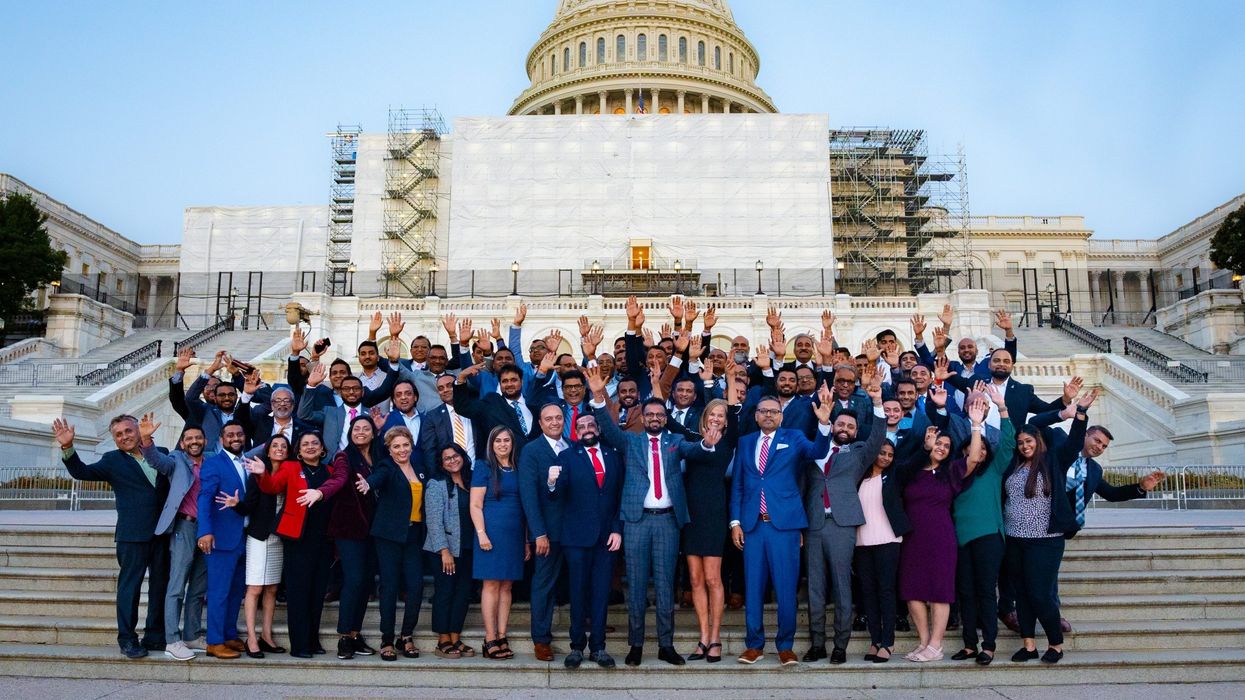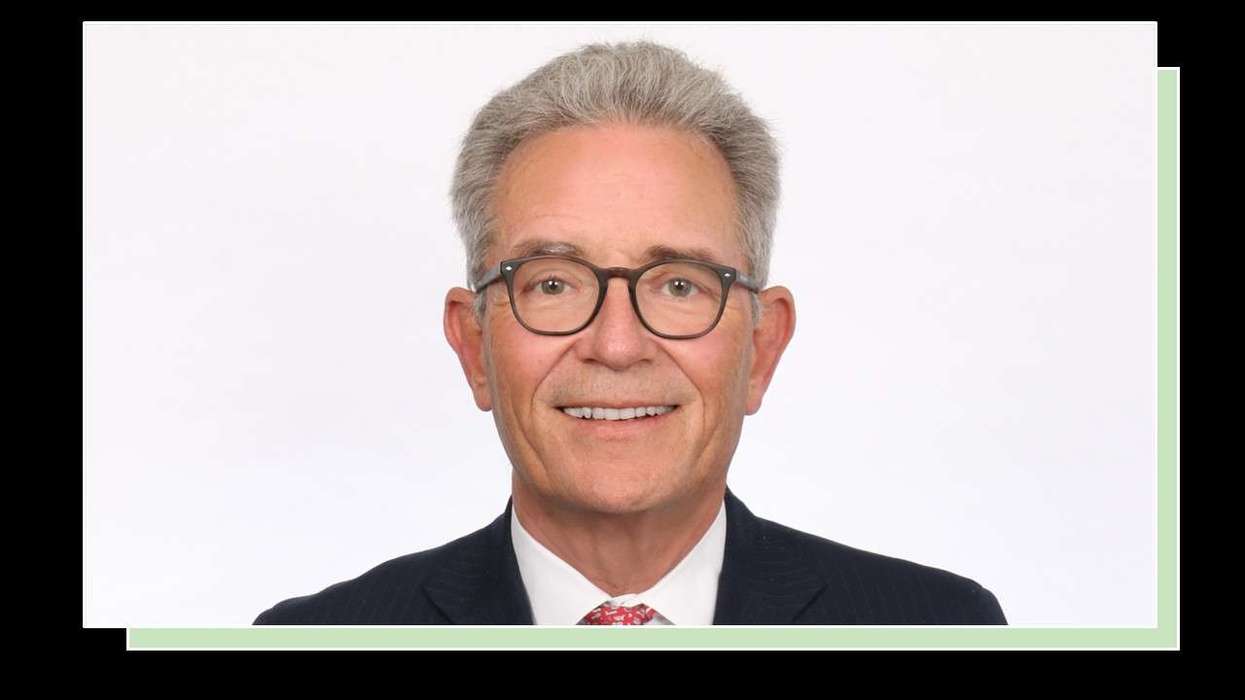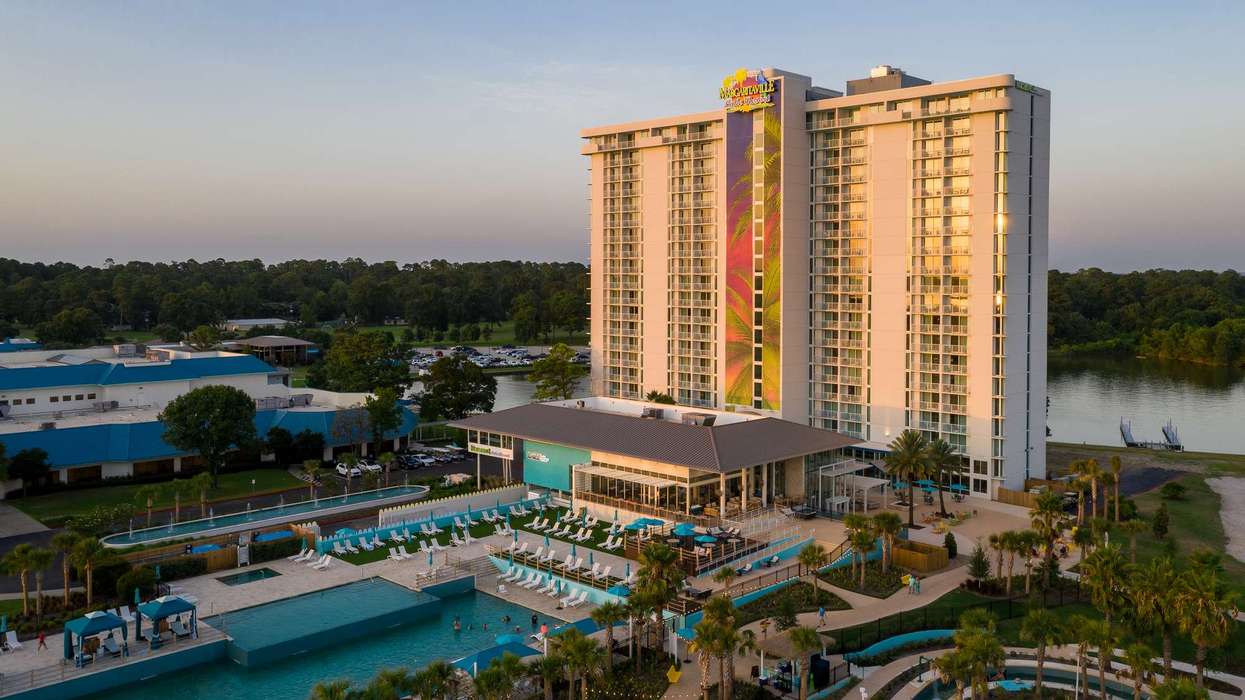REFORMS TO THE distribution of Small Business Administration loans, a new H2-C visa program and expansion of the Earned Income Tax Credit to benefit hotels were the main topics discussed at AAHOA’s recent Fall National Advocacy Conference with legislators in Washington. Days later, AAHOA leadership met with Federal Trade Commission Commissioner Alvaro Bedoya to discuss fair franchising concerns.
A day of advocacy
AAHOA board members and representatives met with more than 100 agency heads and 40 U.S. senators and representatives in Washington to advocate for these and other causes for the hospitality industry.
AAHOA regularly holds the legislative conferences on behalf of its nearly 20,000 members and the hospitality industry at large, according to the association. The four specific issues discussed this year were:
- Promote access to capital by increasing SBA 7(a) and 504 Loan Limits to $10 million from the current $5 million, which was last set in 2010. For hoteliers, over the past decade, the costs of constructing and purchasing properties have skyrocketed and far exceed $5 million.
- Cosponsoring the SBA Franchise Loan Default Disclosure Act, sponsored by Sen. Catherine Cortez Masto of Nevada. The act would require the SBA to publish on its website, and to regularly update, the loan default rates by franchise brands during the preceding 10-year period. Loan default rates for a franchise brand are a key indicator of success of which prospective franchisees should be aware, AAHOA said.
- Provide assistance with labor shortages by cosponsoring the Essential Workers for Economic Advancement Act, sponsored by Rep. Lloyd Smucker of Pennsylvania, to fill a need currently unaddressed in the U.S. immigration system. Also related to the labor shortage, AAHOA asked the legislators to permanently expand the Earned Income Tax Credit provisions that expired at the end of 2021. By expanding the EITC, young adults without children aged 18 years and older, as well as retirees, will qualify for the credit, incentivizing more people to return to work and help to reduce the labor shortages for U.S. employers, including hotels.
- Cosponsor the Franchisee Freedom Act, sponsored by Rep. Jan Schakowsky of Illinois, which would provide a private right of action for persons harmed by violations of the FTC Franchise Rule, and thus allow individuals damaged by rule violations access to the courts. “When FTC rule violations occur, franchisees are not fully informed of the material facts and the corresponding risks they face when signing a franchise agreement,” AAHOA said. “Since franchisees are frequently required to sign personal guarantees, the results can financially devastate a franchise buyer.”
“AAHOA has long understood the importance and significance of advocacy work at the state, local, and federal levels,” said Neal Patel, AAHOA chairman. “Having our voices heard on issues that are important to our members protects and promotes the rights of hotel owners and entrepreneurs in America. We are the experts of our businesses and the hotel industry. It is our responsibility to ensure the views and realities of AAHOA members are considered when decisions are being made by elected officials about their livelihoods and their businesses.”
AAHOA’s legislative conferences show the human impact of the government’s decisions, said Laura Lee Blake, AAHOA president and CEO.
“Providing lawmakers with personal, real-life stories, puts a name and a face to the American hotelier,” Blake said. “The next time these elected officials go to make decisions, they will remember us – the foundations we are laying in these meetings are critical to our advocacy work going forward,” Blake said.
A sit down with the commissioner
In the meeting with Bedoya, the commissioner and his staff involved with oversight of franchising, including Consumer Protection Bureau Director Sam Levine, discussed with the AAHOA representatives unfair practices in franchising and the FTC’s Franchise Rule.
Blake briefed Bedoya and his staff on AAHOA’s recent revamp of its 12 Points of Fair Franchising as an educational primer for AAHOA member franchisees.
“There are so many important topics to address when it comes to advancing fair franchising, and the Federal Trade Commission and the work it does is an important component to AAHOA’s overall strategy,” Patel said. “When it comes to protecting franchisees, the FTC is crucial in ensuring that the U.S. business environment is free from deceptive and unfair business practices, and we are thankful for the FTC’s ongoing engagement with AAHOA and protection of U.S. consumers.”






